Can I Connect 14 Gauge Wire To 12 Gauge Wire?

When planning out the electrical wiring in your home or replacing old wiring, you may have a number of questions. The main one being, can you mix gauge wiring on a single circuit? More specifically, can you connect 14-gauge wire to 12-gauge wire?
While this is possible, it is not recommended in order to prevent overloading. Also, the gauge wire depends largely on the size of the breaker that supplies it.
For example, if the amp capacity of your breaker is 20 amps, you should only use 12-gauge wire, and if it’s 15 amps, the entire circuit should be 14-gauge. While you can use 12-gauge on a 15-amp circuit, it’s not recommended, and you should never use a 14-gauge wire on a 20-amp circuit.
This may sound like a lot of information to digest; however, we’ll examine the reasoning behind this further and outline some other common electrical mistakes to avoid making as a homeowner.
Related Content: Can A 10-Gauge Wire Handle 40 Amps? | What Wire Size For 100 Amp Sub Panel That’s 200 Feet Away? | What Gauge Wire For 50 Amp 220V?
Do You Need to Hire an Electrician?
Get free, zero-commitment quotes from pro contractors near you.

How Are Wires Sized?
When shopping for electrical wire, I’m sure you’ve noticed that they come in a wide variety of sizes and types. While different types of wire are intended for different uses, understanding the right size wire, or gauge, you need is essential to making the correct choice.
Electrical wire is given its size specifications by the American Wire Gauge (AWG) system. Wire gauge refers to the physical size of the wire and is rated using a numerical designation.
This designation is in opposition to the diameter of conductors. More specifically, the larger the diameter of the wire, the smaller the gauge number. The most common sizes include 2-, 6-. 8-, 10-, 12-, and 14-gauge wire. The wire’s gauge will determine the amount of current that is permitted to pass through it safely.
When it comes to the electrical current, this is measured using ampacity. There is a maximum safe carrying capacity for every wire gauge on the market. Refer to the table below for the amperage capabilities of standard non-metallic (NM) cable:
| Amperage Capacities for Standard Non-Metallic (NM) Cable | |
| 14-gauge wire | 15 amps |
| 12-gauge wire | 20 amps |
| 10-gauge wire | 30 amps |
| 8-gauge wire | 40 amps |
| 6-gauge wire | 55 amps |
| 4-gauge wire | 70 amps |
| 3-gauge wire | 85 amps |
| 2-gauge wire | 95 amps |
Why Is Wire Gauge Important?
Your circuit breakers and fuses offer good protection against the possibility of overheating or overloading wires, but they do not provide complete protection. Both devices are constructed to sense overloads in the current and will react by tripping or “blowing” before the wires reach a dangerous point of overheating.
It’s important that you safeguard against exceeding the amperage rating as both your fuses and circuit breaker are not completely foolproof. The potential for danger is presented anytime you plug an appliance or device that will draw more power than what the wire gauge is capable of.
For example, if your space heater is rated for 20 amps and you plug it into a 15-amp circuit that has been wired with 14-gauge wires, this poses a significant hazard. If your circuit breaker happens to fail or operate incorrectly, your heater is going to draw more power than the wires can handle. This will effectively heat the wires and could end up melting insulation nearby or setting any other surrounding materials ablaze.
However, on the other hand, it is perfectly safe to plug appliances that have a lower electrical load into circuits with a higher amperage rating and heavier gauge wires. It will simply draw only the current that is necessary and nothing more.
Can I Connect 14-Gauge Wire To 12-Gauge Wire?
Now that we have a better understanding of wire sizing, amperage capacities, and why wire gauge is so important, let’s dive further into this question.
In order to prevent overloading or to overheat the wires, it is always recommended to use the same gauge wire throughout a circuit. Also, take special care to ensure that you’re using the correct gauge for the number of amps in the circuit. You can refer to the table above as a general guide.
Also, don’t simply proceed by visually looking at the wires. It’s important that you know their particular amp capacity and, contrary to logic, the smaller the gauge, the thicker the wire will be.
The amp capacity for 12-gauge wires is 20 amps. While you can technically use 12-gauge wires on 15-amp circuits, it is not recommended because of the greater cost of a larger size wire. Also, keep in mind that the amperage capacity for 14-gauge wires is 15 amps, and you should never use 14-gauge wires on 20 amp circuits because the wire will catch fire or melt before the breaker ever trips.
How Far Does A 14 Gauge Wire Run?
While maintaining a 3 percent voltage drop, refer to the below tables for the maximum cable lengths.
For 120-volt circuits:
| 14 AWG | 50 feet |
| 12 AWG | 60 feet |
| 10 AWG | 64 feet |
| 8 AWG | 76 feet |
| 6 AWG | 94 feet |
For 240-volt circuits:
| 14 AWG | 100 feet |
| 12 AWG | 120 feet |
| 10 AWG | 128 feet |
| 8 AWG | 152 feet |
| 6 AWG | 188 feet |
Other Common Household Electrical Mistakes To Avoid
In addition to mixing wire gauges, let’s examine some other common electrical mistakes that homeowners make. We always recommend that if you do not feel confident working with electrical devices to consult a licensed electrician. The potential for electrical mistakes is always possible when not managed by a professional.
- Not installing a junction box. This is arguably the biggest electrical mistake made frequently by homeowners. Sometimes referred to as a connection box or electrical box, these devices protect electrical connections by containing heat or sparks when a short circuit takes place. While installing this steel or plastic box will add an extra step to your project, it’s inexpensive and often required by code.
- Installing the junction box behind drywall. It’s important that the junction box is fitted so that it is flush with the drywall. If the box is installed too far into the wall, you can correct this by using a box extension.
- Overfilling a junction box. Placing too many wires into the connection box is not only hazardous but also completely against the National Electrical Code. Your plastic junction box will indicate the approved volume. If you own a steel box, you may need to calculate its volume yourself by multiplying the height, width, and depth of the inside.
- Cutting wires too short. Wires that have been cut too short will result in poor connections and can create potentially dangerous situations. Make sure that you leave plenty of slack for the wires to extend 3-6 inches out from the connection box. If you notice that you have cut them too short, you can splice them and then add in an extension.
- Failure to install a GFCI outlet. GFCI or ground-fault circuit interrupter outlets monitor the amount of power going from the outlet to the appliance plugged into it. It helps to prevent electrocution by cutting off the power if even a slight variation is detected.
- Unprotected cables. The National Electrical Code states that electrical cables that are situated in your home’s framing should never be left exposed. To protect the exposed wiring from damage, simply place it inside a conduit. They come in flexible or metal options and are relatively inexpensive at your local hardware store.
Should You Use 12 Or 14 Gauge Wire?
The gauge of wire you use depends on what exactly is on the circuit you’re connecting to. For instance, if you have both lights and outlets, you should use a 12 gauge. Or, if you are unsure of which gauge to use, then a 12 is a great choice as you cannot really go wrong with it.
However, a 12 gauge wire is not as flexible as a 14 gauge, and it is a little bit more expensive. But if you want to err on the side of caution, then 12 gauge is always a safe choice, especially if it’s on a 15 or 20 amp circuit.
Related Questions
What gauge wire should I use for outlets and lights?
If you’re wiring a circuit that includes both outlets and lights, you can’t go wrong with a 12-gauge wire. It is not as flexible as 14-gauge wire and costs more, but it’s a safe option on both 15 and 20-amp circuits.
Can you use 12 gauge wire on a 15 amp circuit?
Yes, you can use 12 gauge wire on a 15 amp circuit. However, one should never put a 14 gauge wire on a 20 amp circuit, as the wires will melt and cause fire before ever tripping the breaker. Also, keep in mind that a 14 gauge wire is a bit better since it’s thinner and lighter than 12 gauge. But, you can’t go wrong with using either one.
Does gauge of wire matter?
Yes, size does matter when it comes to the gauge of a wire. This is because the thinner the wire, then the more resistance there will be for the current flow. The higher gauge, the thinner the wire. With more resistance, you will lose more energy, which will result in less reliable and weaker detections.
Is lower gauge wire better?
The lower your gauge, the thicker the wire is, which means there’s less resistance to the flow of your current. Thicker wire, such as 12 or 14 gauge, is better for longer wire runs, 4 or 6-ohm speakers, and higher power applications.
Do You Need to Hire an Electrician?
Get free, zero-commitment quotes from pro contractors near you.

Wrapping It Up
Now that you’re equipped with a better overall understanding of wire gauge you should understand why it’s not recommended to mix gauges within a single circuit.
With this understanding and the knowledge of common electrical mistakes, you can help avoid any potential electrical hazards from taking place in your home.
Related Guides

Jessica considers herself a home improvement and design enthusiast. She grew up surrounded by constant home improvement projects and owes most of what she knows to helping her dad renovate her childhood home. Being a Los Angeles resident, Jessica spends a lot of her time looking for her next DIY project and sharing her love for home design.
More by Jessica Stone



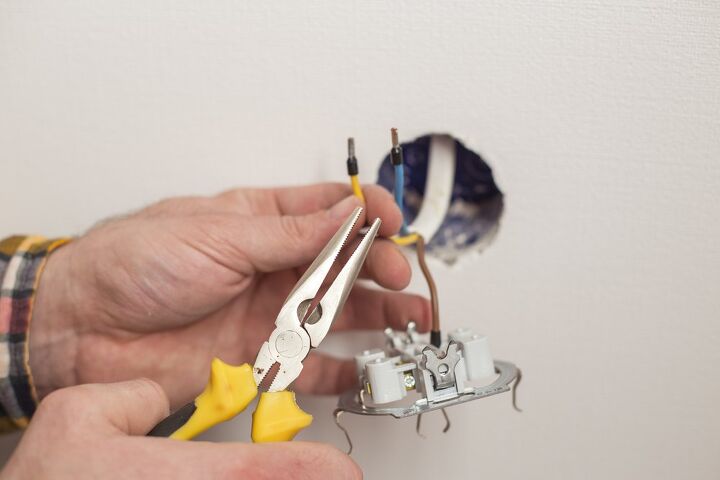
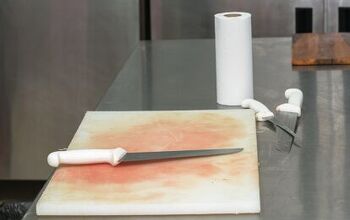





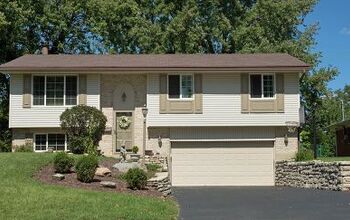

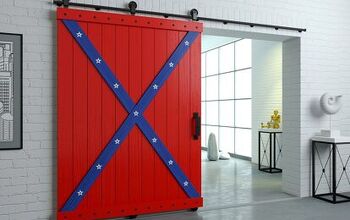
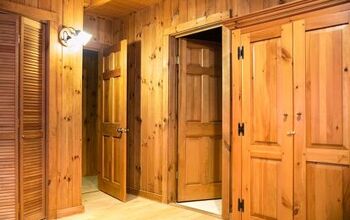





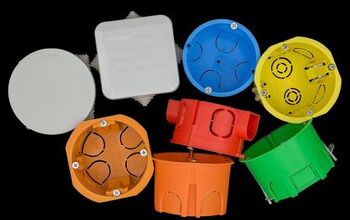

![How To Reset A Whirlpool Cabrio Washer [In 5 Easy Steps!]](https://cdn-fastly.upgradedhome.com/media/2023/07/31/9076531/how-to-reset-a-whirlpool-cabrio-washer-in-5-easy-steps.jpg?size=350x220)
![Standard Dining Room Table Dimensions [for 4, 6, 8, 10 and 12 People]](https://cdn-fastly.upgradedhome.com/media/2023/07/31/9074335/standard-dining-room-table-dimensions-for-4-6-8-10-and-12-people.jpg?size=350x220)




